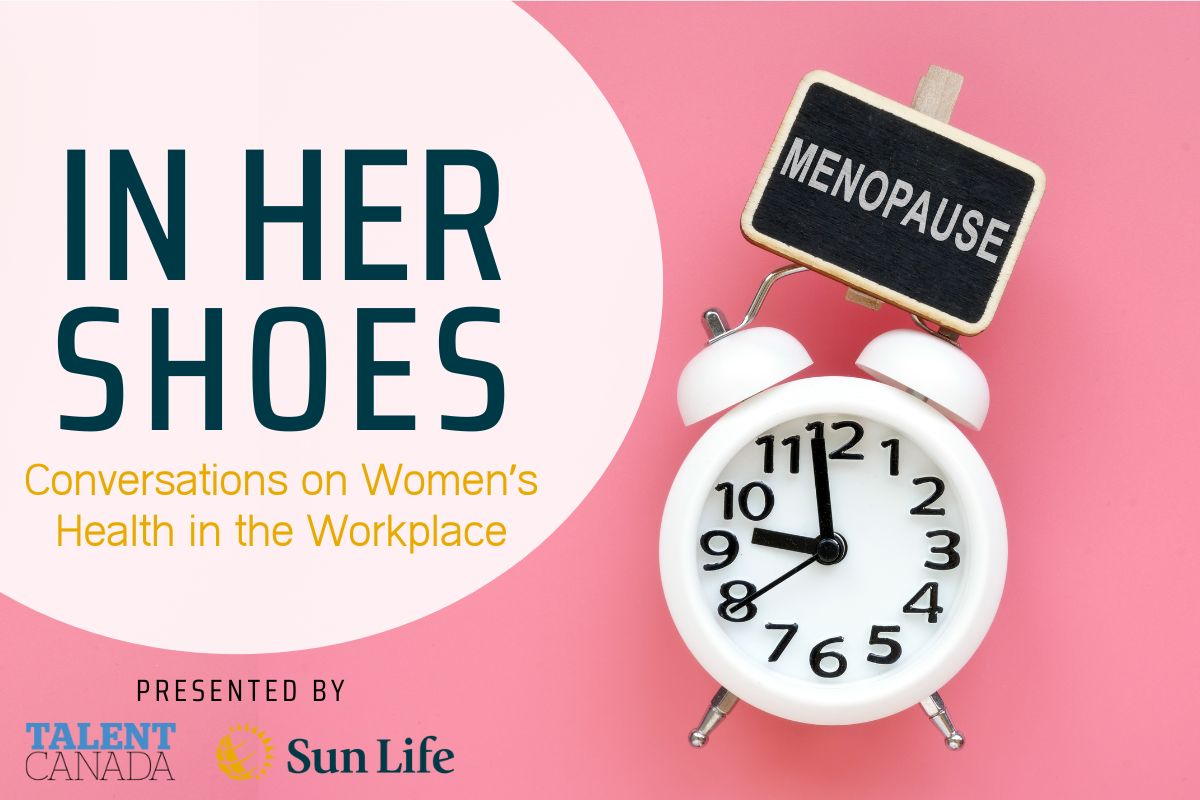

Features
Benefits & Pensions
Employee Wellness
Breaking the silence: Addressing the impact of menopause in the workplace
September 26, 2023
By
Todd Humber

Editor’s note: This is the fourth in a multi-part series tackling women’s health issues in the workplace and what employers, HR and leaders can do to make a difference. It’s based on a special roundtable conversation held by Talent Canada, in partnership with Sun Life, that took a deep dive into the issue. View the special section.
As the dialogue around diversity, equity, and inclusion grows in workplaces across the country, a crucial yet often overlooked topic is emerging: menopause.
It’s a stage of life that impacts millions of working women, yet it remains shrouded in silence and stigma. Panelists at a recent discussion, held by Talent Canada in partnership with Sun Life, revealed interesting findings and raised pressing questions about how workplaces can better support women navigating this significant life transition.
“Menopause is still something that is swept under the rug,” said Janet Ko, president and co-founder of the Menopause Foundation of Canada. “We know that one in 10 women will leave their job because of menopausal symptoms that are not managed.”
Ko said menopause typically occurs between the ages of 45 and 55, precisely when women are taking on more senior roles.
“We believe that menopause is the missing link as to why more women are not breaking through the glass ceiling,” she said.
It’s also hitting at a time when life can be hectic for women, caring for children who are teenagers and parents who are aging, said Ko.
Watch the video
Ko herself stepped back from a senior vice-president role due to menopausal symptoms.
“I’m one of the statistics. I’m one of the one in 10 women who, at the prime of my career, actually stepped back because I did not understand all of the menopausal symptoms that were happening to me. I could not connect the dots.”
She also noted that the healthcare system often fails women in this regard.
“We really believe that workplaces have this tremendous opportunity to tap into the energy, wisdom, talent, and expertise of women in the prime of their careers,” she said.
Krista Hogan, director, product solutions and group benefits at Sun Life, agreed that menopause could be integrated into diversity, equity, and inclusion strategies.
“It’s really about psychological safety and the ability to bring your whole self to work,” Hogan noted. “So if you’re talking about people who are struggling physically, emotionally, and mentally, and they don’t have that understanding and support they need at work, they’re not going to feel psychologically safe.”
Panelists discussed potential ways employers can offer meaningful support. Ko suggested that the first step involves “cracking open the conversation and breaking the stigma of menopause.”
She recommended awareness sessions and ensuring that employee benefits plans cover therapies, including hormone therapy, to manage menopausal symptoms. She also brought up more straightforward changes, like flexible work arrangements and convenient access to drinking water and bathroom breaks.
If your workplace has uniforms, take a hard look at those to ensure they work for all your employees.
“There’s all kinds of potential accommodations and supports that employers can very easily do,” she said, pointing to the creation of employee resource groups where women can have open conversations and dialogue.
Tiana Field-Ridley, senior program manager at the Mental Health Commission of Canada, talked about the need to challenge biases.
“Instead of a leadership team looking at women and saying, ‘Well, she’s irrational,’ or ‘she’s angry,’ how else can we reframe that to say, what are some of the strengths that a woman brings?” she said.
Carmen Klein, vice-president of HR and change management at Cadillac Fairview, noted that many workplaces already have mechanisms that could be adapted to support women going through menopause, such as healthcare spending allowances.
“It’s not creating something new,” Klein said. “It’s about optimizing what you might already have.”
The discussion concluded with a call for transparency around menopausal support.
“Our research indicates that 74% of women say that they do not know if their employer has support or not when it comes to menopause,” Ko stated.
Print this page